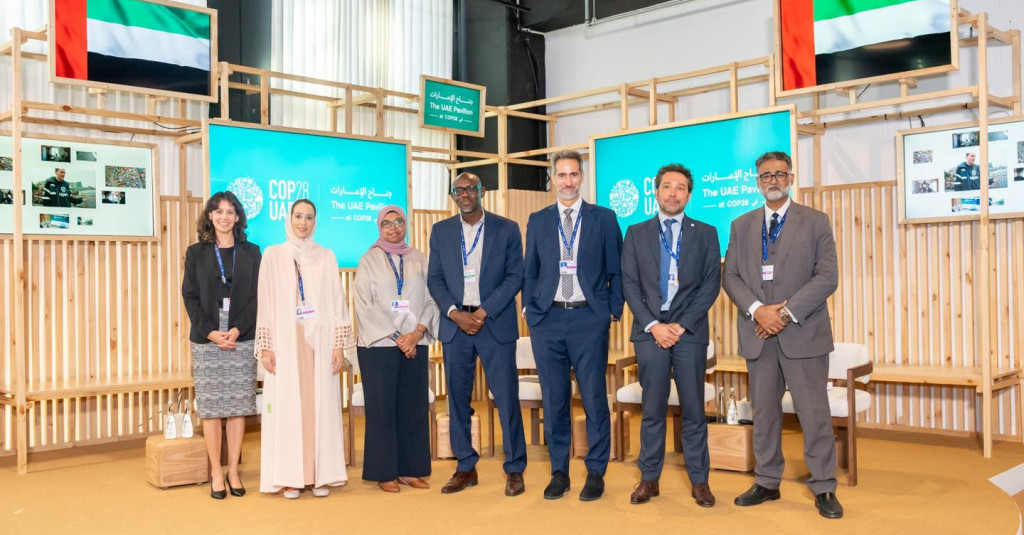Ajman University, WWF International, and Emirates Nature-WWF Announce Progress on the Global Islamic Finance Program (GIFP) to Mobilize Islamic Capital for Climate, Nature and Development

- GIFP is forming a unique consortium of multilateral, financial, impact managers / advisors, government, and non-governmental partners from across MENAT and Asia to scale up blended finance and integrate Islamic Finance support for climate, nature and development.
- Newly created Advisory Committee announced, featuring key stakeholders including WWF, Ajman University, HSBC, Standard Chartered Bank, Securities Commission Malaysia, and Simmons & Simmons to spearhead future of the initiative.
Global conservation organization WWF International and Ajman University – Centre for Excellence in Islamic Finance (AU-CEIF), in collaboration with leading UAE-based environmental charity Emirates Nature-WWF, announce progress on a global financial initiative, the Global Islamic Finance Program (GIFP) for Climate, Nature, & Development. They have unveiled members of the program’s newly formed Advisory Committee. The GIFP aims to design a roadmap and pathway to provide a blended finance solution that further mobilizes public and private Islamic capital to originate (and fund) bankable Nature-based Solutions (bankable NbS), particularly for climate and nature. The initial target size of GIFP is USD 1.5 billion, with a long-term aim to help mobilize between USD 30 – 100 billion of Islamic capital every year, and the phased implementation will begin by Q4 2024
The first-of-its-kind initiative, originating from the Global South, was announced at the high-level COP28 Blue Zone event “Mobilizing Islamic Finance for Climate and Nature”. This event showcased the Islamic Finance opportunity to global decision-makers, financial leaders and climate delegates at the COP28 host country’s national pavilion on the Day of Finance.
Protection of the planet and the environment, including climate management and adaptation, align directly with the higher objectives of Islamic principles. Representing over $3 trillion of financial assets globally, Islamic Finance (IF) is, therefore, a natural partner for the sustainability agenda. It can help divert capital flows towards human activities with a positive environmental and social impact, and away from those with a negative effect. However, the sustainable IF engagement was valued at only $100 billion between 2010 and 2020, revealing a pressing need to identify and overcome limiting factors that have prevented the natural synergy between IF and the sustainability agenda.
Most climate and nature driven initiatives for the Global South typically follow conventional design that are not inclusive of Islamic capital, are limited in size and impact, or lack sophisticated financial structures.
The GIFP is designed to seize this opportunity and address the critical nature financing gap by activating Islamic and traditional funding mechanisms as a novel route of finance for climate and nature. With a special focus on supporting initiatives for the Global South, consortium members will work together to focus on originating the pipeline of, and securing funding for, bankable climate mitigation and adaptation nature-based solutions. The latter will address the growing risks to livelihoods of communities in OIC member countries and will help deliver nature-positive, climate-resilient economic development.
Laila Mostafa Abdullatif, Director General of Emirates Nature-WWF commented: “We believe there is a massive opportunity for Islamic Finance to take the lead in mobilizing blended finance towards Bankable Nature Solutions, especially since the protection of the planet and the environment, and climate mitigation and adaptation are all goals that align firmly with Islamic Finance. This is an exciting area we are working on with partners, and are delighted to share the significant progress made towards the development of the Global Islamic Finance Programme for Climate, Nature and Development.”
Dr. Karim Seghir, Chancellor of Ajman University, commented: “Islamic Finance holds significant potential to substantially contribute to sustainability and enhance climate resilience. At AU, we are dedicated to realizing this potential by offering both thought leadership and practical support in developing and executing effective strategies. The newly conceived GIFP is strategically crafted to capitalize on this prospect. Unique in its origin from the global South, the GIFP is pioneering in its approach to generating viable nature-based solutions for both mitigation and adaptation. It aims to galvanize both public and private Islamic financial resources, directing them into a diversified portfolio to support these initiatives.”
The design and blueprint of GIFP has benefitted from consultation with dozens of Islamic Finance (IF) stakeholders globally. This includes multilateral development banks (MDBs) – most notably the Islamic Development Bank and Asian Development Bank, UN bodies, regulators of banking and non-banking Islamic financial institutions, sovereign wealth funds, government offices and ministries, as well as banking associations and councils. The process further involved global commercial banking institutions, alongside local, regional and international Islamic banks and non-banking Islamic financial institutions. The involvement of sovereign and private impact infrastructure development bodies and funds was crucial, as was the diverse range of perspectives and guidance offered by private owners of Islamic capital, including family offices and high-net-worth individuals (HNWI). Islamic impact stakeholders such as Islamic trust bodies, fintech companies, advisors, consultants, project owners and managers, and Shariah and financial experts, including scholars, Islamic financial research bodies and think tanks, played an instrumental role in the development of the GIFP.
The GIFP will leverage insights gained from WWF and its partners in initiatives like the Dutch Fund for Climate Development (DFCD). This includes expertise in creating a pipeline of bankable NbS projects, benefiting from a blended finance approach that facilitates grant financing to initiate and prepare projects for investment.